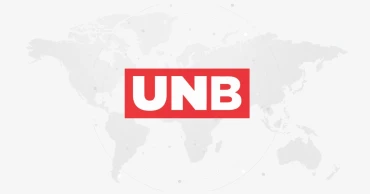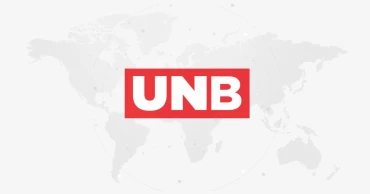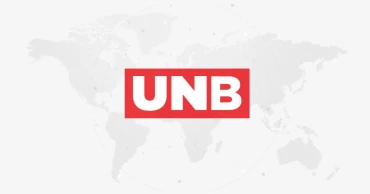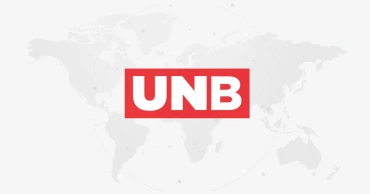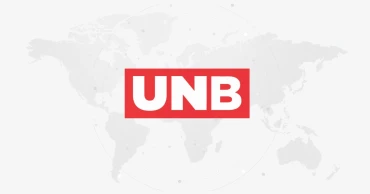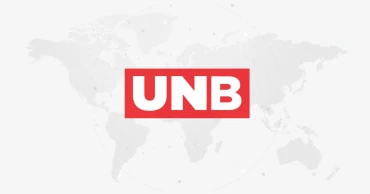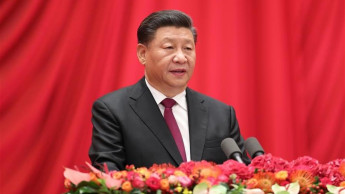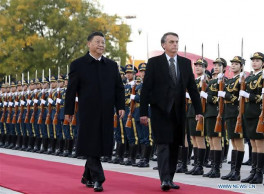Xi
Xi awarded 3rd term as China's president, extending rule
Chinese leader Xi Jinping was awarded a third five-year term as the nation's president Friday, putting him on track to stay in power for life at a time of severe economic challenges and rising tensions with the U.S. and others.
The endorsement of Xi's appointment by the ceremonial National People's Congress was a foregone conclusion for a leader who has sidelined potential rivals and filled the top ranks of the ruling Communist Party with his supporters since taking power in 2012.
The vote for Xi was 2,952 to 0 by the NPC, members of which are appointed by the ruling party.
Xi, 69, had himself named to a third five-year term as party general secretary in October, breaking with a tradition under which Chinese leaders handed over power once a decade. A two-term limit on the figurehead presidency was deleted from the Chinese Constitution earlier, prompting suggestions he might stay in power for life.
There was no indication that members of the National People's Congress had any option other than to endorse Xi and other officials picked by the Communist Party for other posts. When Xi was named to his first term as president in 2013, NPC members received a ballot with only his name on it and dropped it unchanged into a box. On Friday, reporters were kept at a distance and couldn’t see the four ballots that each delegate deposited into boxes placed around the vast auditorium of the Great Hall of the People.
Xi was also unanimously named head of the Central Military Commission that commands the party's military wing, the 2 million-member People's Liberation Army, an appointment that has been automatic for the party leader for three decades.
In other voting, the party's third-ranking official, Zhao Leji, was named head of the National People's Congress. The vast majority of the body's legislative work is headed by its Standing Committee, which meets year-round.
Zhao, 67, a holdover from the previous party Politburo Standing Committee, the apex of political power in China headed by Xi, won Xi’s trust as head of the party’s anti-corruption watchdog, the Central Commission for Discipline Inspection, pursuing an anti-graft campaign that has frozen all potential opposition to Xi.
Former Shanghai party boss and member of the last Politburo Standing Committee Han Zheng was named to the largely ceremonial post of state vice president.
Xi, Zhao and Han then took the oath of office with one hand on a copy of the Chinese Constitution. The session also swore in 14 congress vice chairpersons.
Read more: Iran, Saudi Arabia agree to resume relations after tensions
Wang Huning, a holdover from the last Politburo Standing Committee, was later named head of the Chinese People’s Political Consultative Conference, the NPC’s advisory body that, in coordination with the party’s United Front Department, works to build Xi’s influence and image abroad. Wang has been a top adviser to three Chinese leaders and has authored books critiquing Western politics and society.
Xi's new term and the appointment of loyalists to top posts underscores his near-total monopoly on Chinese political power, eliminating any potential opposition to his hyper-nationalistic agenda of building China into the top political, military and economic rival to the U.S. and the chief authoritarian challenge to the Washington-led democratic world order.
While six others serve with him on the Politburo Standing Committee, all have longstanding ties to Xi and can be counted on to see to his will on issues from party discipline to economic management.
The standing committee has only men and the 24-member Politburo, which has had only four female members since the 1990s, also has no women after the departure of Vice Premier Sun Chunlan.
Second-ranked Li Qiang is widely expected to take over as premier, nominally in charge of the Cabinet and caretaker of the economy. Li is best known for ruthlessly enforcing a brutal “zero-COVID” lockdown on Shanghai last spring as party boss of the Chinese financial hub, proving his loyalty to Xi in the face of complaints from residents over their lack of access to food, medical care and basic services.
Former head of the manufacturing powerhouse of Guangdong province, seventh-ranked Li Xi has already been appointed to replace Zhao as head of the Central Commission for Discipline Inspection.
The congress is also expected to pass a measures intensifying party control over national level government organs as part of Xi’s campaign of centralizing power under the party.
At the opening of the annual congress session on Sunday, outgoing Premier Li Keqiang announced plans for a consumer-led revival of the struggling economy, setting this year’s growth target at “around 5%.” Last year’s growth in the world’s second-largest economy fell to 3%, the second-weakest level since at least the 1970s.
Separately, the Ministry of Finance announced a 7.2% budget increase in the defense budget to 1.55 trillion yuan ($224 billion), marking a slight increase over 2022. China’s military spending is the world’s second highest after the United States.
In the days then, Xi and his new Foreign Minister Qin Gang have set a highly combative tone for relations with the U.S., amid tensions over trade, technology, Taiwan, human rights and Beijing's refusal to criticize Russia's invasion of Ukraine.
On Tuesday, Qin warned in unusually stark terms about the possibility of U.S.-China frictions leading to something more dire.
“If the United States does not hit the brake, but continues to speed down the wrong path, no amount of guardrails can prevent derailing and there surely will be conflict and confrontation,” Qin said in his first news conference since taking up his post last year.
That echoed comments at a small group meeting of delegates from Xi on Monday, in which he said that “Western countries led by the United States have implemented all-round containment, encirclement and suppression of China, which has brought unprecedented grave challenges to our nation’s development.”
Xi followed up on Wednesday by calling for “more quickly elevating the armed forces to world-class standards.”
China must maximize its “national strategic capabilities” in a bid to “systematically upgrade the country’s overall strength to cope with strategic risks, safeguard strategic interests and realize strategic objectives,” Xi was quoted as saying to a meeting of delegates by the official Xinhua News Agency.
Asked about China's future foreign relations under Xi, Foreign Ministry spokesperson Mao Ning struck a relatively mild tone.
Beijing maintains an “independent foreign policy of peace” and will “continue to view and develop China-U.S. relations in accordance with the principles of peaceful coexistence, mutual respect and win-win cooperation,” Mao said at a daily briefing.
"We hope the U.S. side can also meet us halfway and push China-U.S. relations back on the track of sound and stable development," she said.
Russian President Vladimir Putin, with whom Xi has formed close ties, issued his congratulations, saying Xi's new term is an "acknowledgement of your achievements as the head of state, as well as wide support of your policy focused on China’s socioeconomic development and protection of its national interests on the global stage.”
Under Xi, China and Russia announced a “no limits” relationship and China has pointedly refused to criticize Russia's invasion of Ukraine while echoing Moscow’s claim that the U.S. and NATO were to blame for provoking the Kremlin. Beijing has also blasted sanctions imposed on Russia after it invaded Ukraine, while Russia has staunchly supported China amid tensions with the U.S. over Taiwan.
“We will continue to coordinate our joint work related to the most important issues on the regional and international agenda,” Putin said, according to the Kremlin.
North Korean leader Kim Jong Un, head of the ruling Worker's Party, also sent congratulations, saying “the two parties and the two countries are defending and advancing socialism, the common cause, while supporting and closely cooperating with each other.” China is the impoverished and isolated North's most important political ally and source of food and fuel aid.
2 years ago
Putin, Xi vow closer ties as Russia bombards Ukraine again
Russian President Vladimir Putin and Chinese leader Xi Jinping vowed Friday to deepen their bilateral cooperation against the backdrop of Moscow’s 10-month war in Ukraine, which weathered another night of drone and rocket attacks following a massive missile bombardment.
Putin and Xi made no direct mention of Ukraine in their opening remarks via videoconference, which were broadcast publicly, before going into private talks. But they hailed strengthening ties between Moscow and Beijing amid what they called “geopolitical tensions” and a “difficult international situation,” with Putin expressing his wish to extend military collaboration.
“In the face of increasing geopolitical tensions, the significance of the Russian-Chinese strategic partnership is growing as a stabilizing factor,” said Putin, whose invasion of a neighboring country has been stymied by fierce Ukrainian resistance and Western military aid.
The Russian leader said he expected Xi to visit Moscow in the spring. Such a trip “will demonstrate to the whole world the strength of the Russian-Chinese ties on key issues, will become the main political event of the year in bilateral relations,” he said.
Read: China’s foreign minister signals deeper ties with Russia
Putin said military cooperation has a “special place” in the relationship between their countries. He said the Kremlin aimed to “strengthen the cooperation between the armed forces of Russia and China.”
Xi, in turn, said through a translator that “in the face of a difficult and far from straightforward international situation,” Beijing was ready “to increase strategic cooperation with Russia, provide each other with development opportunities, be global partners for the benefit of the peoples of our countries and in the interests of stability around the world.”
In its report on the meeting, Chinese state broadcaster CCTV described the events in Ukraine as a “crisis.” The term marked a departure from China’s usual references to the “Ukraine situation,” and the change may reflect growing Chinese concern about the direction of the conflict.
“Xi Jinping emphasized that China has noted that Russia has never refused to resolve the conflict through diplomatic negotiations, for which it (China) expresses its appreciation,”” CCTV reported.
Ties between Moscow and Beijing have grown stronger since Putin sent his troops into Ukraine on Feb. 24. Just last week, Moscow and Beijing held joint naval drills in the East China Sea.
Read: Hong Kong leader aims to reopen border with China next month
China, which has promised a “no limits” friendship with Russia, has pointedly refused to criticize Moscow’s actions in Ukraine, blaming the U.S. and NATO for provoking the Kremlin, and has blasted the punishing sanctions imposed on Russia.
Russia, in turn, has strongly backed China amid the tensions with the U.S. over Taiwan.
Russia and China are both facing domestic difficulties. Putin is trying to maintain domestic support for a war that has lasted longer than anticipated, while a surge in COVID-19 cases has overwhelmed hospitals in China.
In Ukraine, authorities reviewed the toll from a widespread Russian missile attack on power stations and other vital infrastructure Thursday that was the biggest such bombardment in weeks. Four civilians were killed during the barrage, according to Kyrylo Tymoshenko, the deputy head of the Ukrainian president’s office.
The General Staff of the Armed Forces of Ukraine said in its Friday morning update that Russian forces had unleashed a total of 85 missiles and 35 airstrikes on targets across Ukraine in the previous 24 hours. Russia also launched 63 attacks from multiple launch rocket systems, the military report said.
Following the first waves of missiles on Thursday morning, Russian forces attacked Ukraine with Iranian-made Shahed-131/136 drones on Thursday night and early Friday, all of which were shot down, the Ukrainian air force said.
Read: Thousands flee Hong Kong for UK, fearing China crackdown
Some were aimed at Kyiv, Mayor Vitali Klitschko said Friday. Of seven kamikaze drones launched against the Ukrainian capital, two were shot down on the approach to the city and five over Kyiv itself, according to Klitschko.
Ukrainian President Volodymyr Zelenskyy said in his nightly video address that Russia hasn’t abandoned plans to capture all of Donetsk, aiming to accomplish the goal by New Year’s Day. Zelenskyy also warned Ukrainians there could be another widespread air assault.
“There are two days left in this year. Perhaps the enemy will try once again to make us celebrate the New Year in the dark. Perhaps, the occupants are planning to make us suffer with the next strikes on our cities,” he said. “But no matter what they plan, we know one thing about ourselves: we will survive. We will. We will drive them out. No doubt about it. And they will be punished for this terrible war.”
3 years ago
Xi criticises Trudeau in person over alleged leaks of closed-door meeting at G-20 summit
A Chinese spokesperson on Thursday accused Canada of acting in a “condescending manner” following a testy exchange between President Xi Jinping and Canadian Prime Minister Justin Trudeau that underscores the depths to which the bilateral relationship has fallen.
Foreign Ministry spokesperson Mao Ning’s comments came after Xi chastised Trudeau at the G-20 summit on Wednesday over media reports on an earlier meeting during which Trudeau expressed concern about Chinese interference in Canada’s internal affairs. The apparently spontaneous exchange with a translator present was captured on video.
Mao denied China had ever interfered in the internal affairs of other nations and said Canada was responsible for the downturn in ties.
“Canada should take concrete actions to create conditions for the improvement of China-Canada relations,” she said at a daily briefing. The conversation was “quite normal and should not be interpreted as President Xi criticizing or blaming anyone.”
Mao added that there had been a clear lack of respect from the Canadian side.
“China has no problem at all with having a candid dialogue with other countries,” she said. “But we hope such a candid dialogue will be based on equal treatment and mutual respect, rather than criticizing the other in a condescending manner.”
In his comments to Trudeau, Xi said, “Everything we discussed has been leaked to the paper; that’s not appropriate.”
“And that’s not ... the way the conversation was conducted, if there is sincerity on your part,” Xi said, at which point Trudeau interrupted and stepped toward Xi.
“In Canada, we believe in free and open and frank dialogue and that is what we will continue to have,” Trudeau said. “We will continue to look to work constructively together, but there will be things we will disagree on.”
“Let’s create the conditions first,” Xi responded. The two shook hands after the brief encounter.
Mao said nothing Xi said should be interpreted as a threat.
“As you can see from the video, I think it is quite normal for the two heads of state to have a brief conversation during the G-20 summit. The two sides were just stating their respective positions,” she said.
Trudeau first spoke with Xi at the G-20 last Tuesday. A senior Canadian government official said the two spoke about Russia’s invasion of Ukraine, North Korea and climate change, and that Trudeau also raised “our serious concerns around interference activities in Canada.” The official spoke on condition of anonymity as they were not authorized to speak publicly about the matter.
Asked later at a news conference about the confrontation, Trudeau said, “not every conversation is always going to be easy, but it’s extremely important that we continue to stand up for the things that are important for Canadians.”
Foreign Minister Mélanie Joly also said she discussed Chinese interference with her Chinese counterpart at the G-20.
Joly remarked last week that China is an increasingly disruptive global power and warned businesses against deepening their ties, saying there were “geopolitical risks.”
China-Canada ties nosedived after China jailed two Canadians shortly after Canada arrested Meng Wanzhou, chief financial officer of Huawei Technologies and the daughter of the company’s founder, on a U.S. extradition request in December 2018.
They were sent back to Canada last year, the same day Meng returned to China after reaching a deal with U.S. authorities in her case, leading many to label China’s action “hostage politics.”
Canada has banned wireless carriers from installing Huawei equipment in its high-speed 5G networks, joining allies in shunning the company that has close links with the ruling Communist Party and its military wing, the People’s Liberation Army. China has described the charges against Huawei and Meng as a politically motivated attempt to hold back China’s economic and technological development.
More recently, Canadian police charged a Hydro-Québec employee on Monday with espionage for allegedly sending trade secrets to China.
Read more: Biden says he and Xi have a “responsibility” to show US, China can “manage differences”
Earlier this month, Canadian public broadcaster CBC closed its China bureau after applications to base a new reporter in Beijing were met with what it called “monthslong silence from Chinese officials.”
The apparently unscripted remarks from Xi marked a rare display of public candor from the usually highly composed veteran politician. Known as an ardent nationalist who has vowed to always put China’s interests first, Xi recently had himself granted a third five-year term as leader of the ruling Communist Party, while packing top bodies with loyalists.
In one earlier such incident during a visit to Mexico in 2009 while serving as vice president, China told Chinese students that, “There are a few foreigners, with full bellies, who have nothing better to do than try to point fingers at our country.”
“China does not export revolution, hunger or poverty. Nor does China cause you headaches. Just what else do you want?,” Xi said in remarks caught on camera.
Also read: Out of Covid bubble, Xi faces dramatically changed world at G-20
3 years ago
Xi talks with Philippine president over phone
Chinese President Xi Jinping on Friday held a phone conversation with his Philippine counterpart, Rodrigo Duterte.
During the phone conversation, Xi said that he still has fresh memories about Duterte's first visit to China in October 2016, which he called an ice-breaking trip and a milestone in the history of bilateral relations.
In the past six years, Xi said, the two sides have followed the important consensus reached between the two leaders, and have persisted in promoting good-neighborly friendship and cooperation, properly handling differences, working together for common development, and getting rid of interference in bilateral ties, which is demonstrating a new situation of vigorous development.
The two countries have established a comprehensive strategic cooperative relationship, deepened the synergy between the joint construction of the Belt and Road Initiative and the plan of "Build, Build, Build," and jointly promoted cooperation in major programs such as infrastructure construction, with bilateral trade volume doubled during the period, he added.
In the face of the COVID-19 pandemic, Xi said, the two sides have stood by each other, safeguarded the safety of the lives of the people in both countries and their health, and worked to maintain the stability of the regional industrial and supply chains.
The two sides' properly handling of the South China Sea issue has provided an important foundation for the China-Philippines friendly cooperation, benefited the two people and also effectively safeguarded regional peace and stability, Xi said.
Xi stressed that China maintains the continuity and stability in its policy toward the Philippines, and is willing to work with the country to promote sustained and sound development of the bilateral relations so as to reach new levels.
The Chinese side stands ready to continue to provide COVID-19 vaccines to the Philippines if needed, and strengthen bilateral cooperation in the research and development of specific drugs and in public health capacity building, Xi said.
China is also ready to promote the construction of major projects and expand cooperation in trade, investment, education, as well as people-to-people and cultural exchanges with the Philippines, he said.
China will also import more quality products from the Philippines, encourage Chinese enterprises to invest and do business in the Philippines, and contribute to the modernization process of the Philippines, he added.
Xi stressed that the development of the current international situation has once again proved that regional security cannot be achieved by strengthening military alliances.
Read: China urges int'l community to do more for Mali's peace, stability
The Chinese side is ready to work with the Philippines and other regional countries to uphold the vision of common, comprehensive, cooperative and sustainable security, take firm control over regional security, and jointly safeguard the hard-won peace and stability in the region so as to build a community with a shared future for mankind, he added.
Duterte said he highly values his friendship and good relations with President Xi.
Over the past six years, thanks to the joint efforts of both sides, people in the two countries have become more friendly toward each other, bilateral relations stronger and their cooperation more fruitful, and the Philippine people have truly felt the benefits of Philippines-China cooperation, he added.
Thanking China for its vaccine support in the anti-pandemic fight as well as the timely help to the people affected by storms in his country, Duterte said China is a true and reliable friend of the Philippine people.
The Philippine side is willing to consolidate its friendship and cooperation with China, continue to strengthen bilateral relations, learn from China's experience in poverty reduction, and promote cooperation in such fields as anti-pandemic, economy and trade, infrastructure, tourism and education, said the president.
The Philippines also welcomes Chinese investment and cooperation in the country, which is of great significance for the Philippines to achieve its own development, he added.
The Philippines is willing to work with China to properly address the South China Sea issue, set an example for the peaceful resolution of disputes, and maintain regional peace and stability, Duterte said, adding the Philippines is also willing to play an active role in the development of ASEAN-China relations.
3 years ago
Xi says China strives for accessibility, affordability of vaccines
Chinese President Xi Jinping said on Monday that China will continue supporting developing countries in their fights against COVID-19 and contribute to making vaccines public goods that are accessible and affordable to all.
5 years ago
Xi meets Lam in 'vote of confidence' over Hong Kong protests
Chinese President Xi Jinping's surprise meeting with Hong Kong leader Carrie Lam was a "vote of confidence" in her government's ability to tackle five months of anti-government protests that have rocked the semi-autonomous Chinese territory, a senior official said Tuesday.
6 years ago
Xi stresses people-centered development in urban construction
Xi Jinping, general secretary of the Communist Party of China Central Committee, said that the concept of people-centered development must be carried out in urban construction.
6 years ago
Xi speaks at symposium soliciting opinions on CPC draft decision from non-CPC personages
Xi Jinping, general secretary of the Communist Party of China (CPC) Central Committee, presided over and delivered a speech at a symposium held on Sept. 25 by the CPC Central Committee to solicit opinions from non-CPC personages on a draft document.
6 years ago
Xi says China, Brazil cooperation embraces brighter future
Beijing, Oct. 26 (Xinhua/UNB) -- China's policy to develop relations with Brazil from a strategic height and long-term perspective remains unchanged and the mutually beneficial cooperation between the two countries will embrace a brighter future, Chinese President Xi Jinping said Friday.
6 years ago
